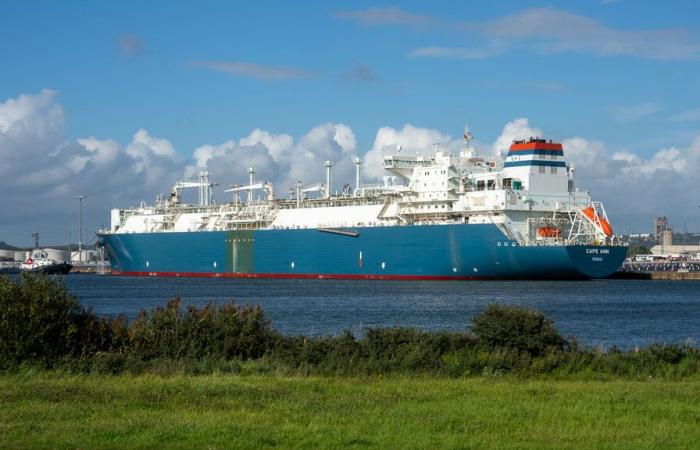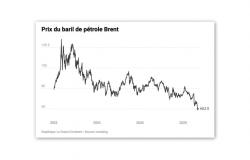The European Union intends to go to the end … by 2027. The European Commission announced, this Tuesday, May 6, that it would publish legal proposals in June to prohibit the importation of Russian gas within the framework of new contracts and spot contracts from the end of 2025. The European executive also intends to prohibit any remaining import, via pipelines and in the form of liquefied natural gas, by the end of 2027.
“The European Union sends a very clear message to Russia: we will never allow it to use energy as a weapon against us”said European Commissioner Dan Jorgensen. These proposals must be approved by the European Parliament and the qualified majority of the EU member countries.
In a roadmap project published on May 6, the Commission plans to force European companies to disclose the volumes and the duration of their Russian gas supply contracts. In parallel, it also asks each State Member State to offer “compulsory national plans” by the end of the year aimed at stopping Russian energy imports. Measures aimed at imports of Russian enriched uranium could also be presented in June.
No lifting of the sanctions provided for in the event of a peace treaty with Ukraine
The possible lifting of these measures in the event of signing a peace treaty within the framework of the war in Ukraine is not on the agenda. “It would not be reasonable on our part to become dependent on Russian fuel. Above all, Vladimir Putin showed that he did not hesitate to blackmail with the gas tap. We should not place ourselves again in such a situation of vulnerability. Then we do not want to support its war economy, because who knows which country will be the next one ”justified the European Commissioner Dan Jorgensen.
-
“These measures should not result in price increasesAvance and Jorgensen. But for some countries, the transition will be more difficult than for others. ” The Commission indicates predicting a progressive deployment “taking into account national specificities in terms of supply needs and alternatives”.
The objective set by the European Union remains a challenge, as twenty-seven are still dependent on Russian gas. About 19% of European gas still comes from Russia, via gas pipeline and liquefied natural gas shipments – against around 45% in early 2022 following the establishment of an embargo. The European Commission hopes for a reduction in a third of the remaining Russian gas supplies within twenty-seven by the end of 2025.
Selected for you








